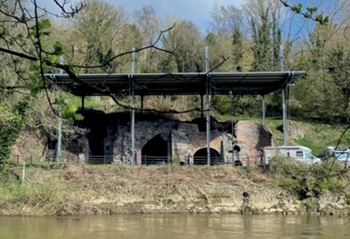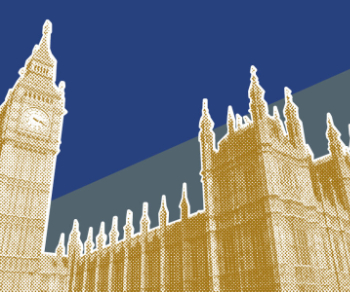The general election and why a shortage of electrical apprentices matters
Last year ECA asked its Members what their top business concerns were. The overwhelming response came back; the shortage of suitably qualified electricians was holding back business growth.
Low apprentice recruitment rates are storing up problems for the future. Just as a rapid expansion in electrification was presenting more opportunities. This a threat to the industry. It is also a threat to the country, as the UK urgently needs to bring on-stream cheaper, home-grown energy.
Contents |
[edit] It's all about the economy
The UK is in the middle of an election campaign. A date has not been announced. But there is no doubt the politicians are in campaigning mode. Despite headlines about all manner of issues, this election, like most elections, will be fought on the economy. It all boils down to whether the public feel better, or worse off.
Energy costs are a high proportion of domestic and business outgoings. This makes them an election battleground. While every politician wants a magic bullet to bring down energy prices, approaches differ. The greater the division between the parties, the higher up the media agenda it will rise. In turn, this will demand more scrutiny of the facts and figures.
[edit] High energy costs
Upfront costs for installing low carbon technologies put off consumers, despite long term savings. Assumptions about the energy needs of a building or the right kit to install result inappropriate incentives. Often these don’t lead to cost or carbon savings. The result is some politicians fall back on solutions such as home-grown oil or gas to bring down energy costs. These ignore taxpayer subsidies offered as sweeteners, such as the £3.75bn offered to the developer of the Rosebank Oil field.
Consumers continue to feel the pain of high energy prices. Global events are only part of the picture. Reducing fuel bills is tackled piecemeal or left to industry to resolve. Structural issues, which only governments can address, would mitigate rising bills. The Government could overhaul the energy taxation system to reflect cheaper, cleaner electricity. And address EPC ratings which give only partial data about a building’s energy efficiency. Neither issue is politically ‘sexy’, so they languish in the bottom of Department in-trays.
[edit] Qualified electricians can reduce energy bills
Circling back to the concerns of ECA Members. Why should the shortage of electrical apprentices matter to the voter, and therefore the politician on the campaign trail? Without enough electricians to advise on cost savings, energy bills will go on rising.
What’s more, electricians can bring down bills further by smart integration of devices. For example; using cheaper electricity at off-peak times, feeding electricity back to the grid, and maximising energy efficiency. These integrated cost saving measures can only be carried out by an electrician who knows what they are doing.
[edit] Gap in the electrical workforce
There is a hole in the size of the electrical workforce. If not addressed, it will affect everyone and prevent a reduction in energy costs. Joined-up solutions involving the industry, are the only way to supply the skills needed to electrify the country.
At election time assumptions underlying the official numbers of ‘green’ jobs need scrutiny. According to electrical industry data we need 12,000 new electrical apprentice starts each year. This is a large, but achievable number. Far lower (and less expensive) than the official data suggests.
[edit] Calling all politicians!
More electricians will lead to long term savings on energy bills for every business and consumer. With the practical solutions offered by the electrical industry, politicians might find that elusive magic bullet - a low-cost solution to reducing energy bills. It is a fundamental flaw not to listen to the industry that can deliver such a solution.
[edit] Organise a site visit
In normal times it can be hard to get a politician to listen, but not in an election year. Now is the ideal time to invite MPs (or candidates), to visit businesses. Every campaigner loves a photo in a hard hat. Use the opportunity to invite politicians to see businesses. Show them how investing in apprentices, will bring down energy cost
This article appears on the ECA news and blog site as "General Election 2024: Why a shortage of electrical apprentices matters" dated February 28, 2024.
--ECA
[edit] Related articles on Designing Buildings
- Chancellor's 2022 Autumn statement industry response.
- Does the Autumn Statement fire the starting pistol for an election campaign?
- Engineers and politics.
- ECA articles.
- Industry responds as Rishi Sunak becomes new PM.
- No net zero without skilled workforce.
- Pre-election analysis.
- Property in politics.
- The autumn statement: What is it and does it effect construction ?
Featured articles and news
The act of preservation may sometimes be futile.
Twas the site before Christmas...
A rhyme for the industry and a thankyou to our supporters.
Plumbing and heating systems in schools
New apprentice pay rates coming into effect in the new year
Addressing the impact of recent national minimum wage changes.
EBSSA support for the new industry competence structure
The Engineering and Building Services Skills Authority, in working group 2.
Notes from BSRIA Sustainable Futures briefing
From carbon down to the all important customer: Redefining Retrofit for Net Zero Living.
Principal Designer: A New Opportunity for Architects
ACA launches a Principal Designer Register for architects.
A new government plan for housing and nature recovery
Exploring a new housing and infrastructure nature recovery framework.
Leveraging technology to enhance prospects for students
A case study on the significance of the Autodesk Revit certification.
Fundamental Review of Building Regulations Guidance
Announced during commons debate on the Grenfell Inquiry Phase 2 report.
CIAT responds to the updated National Planning Policy Framework
With key changes in the revised NPPF outlined.
Councils and communities highlighted for delivery of common-sense housing in planning overhaul
As government follows up with mandatory housing targets.



















